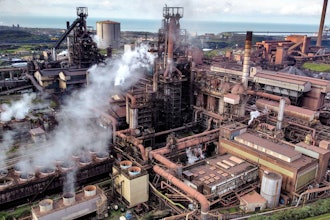BATON ROUGE, La. (AP) -- Louisiana's chemical industry stands to lose 700 to 1,200 jobs by the end of 2010, continuing a 10-year trend of reduced employment, the head of an industry trade group says.
Dan Borne, president of the Louisiana Chemical Association, told the Press Club of Baton Rouge, that about 70 companies in the association's membership indicated, as a group, that a 3 percent to 5 percent staff reduction is likely next year.
The industry currently employs about 24,000 people, down from an all-time high of 35,000 in 1999. The jobs average more than $80,000 a year, Borne said Monday
The current economic recovery scenario means a weak rebound in the demand for chemicals, Borne said. For example, the housing industry, a key indicator of chemical product demand, shows signs of recovering, but housing starts remain at historically low levels, Borne said.
Chemical production in Louisiana dropped 17.8 percent in June as compared with June 2008. Only in the emerging markets of China, Korea and India has chemical production risen for three straight months, Borne said.
"Our production here is dominated by bulk chemical products and these are the kinds of things that get nicked when you have a prolonged downturn," he said.
Borne said there is general unhappiness in the industry with legislation to cap greenhouse gas emissions and to create a cap-and-trade system under which companies could trade allowances for more emissions to other companies.
A bill before Congress uses 2005 carbon emission levels, when production was down in Louisiana due to hurricanes, and would thus cause future caps on emissions in Louisiana to be unreasonably tough, Borne said.
LCA wants more emphasis on nuclear power and expanding petroleum exploration that will avoid higher costs being passed on to consumers, Borne said.






















